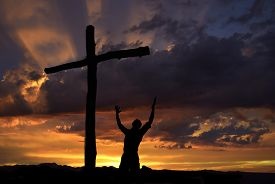WHO WILL
By leaning on Matthew 24:14 with the weight of Isaiah 6:8, suddenly, out of the side of this living assembly pops a once previously hidden truth, and with it, a distinctive harmony, with its own unique tenor, subsequently emerges.
The Word of God is powerful, poetic and living. And in the scales of life imparted, each individual scripture has its own particular voice and contribution. Some have the voice of music, many the voice of love, others of peace and war. And, then, there are those scriptures that sink in deep, with their ragged and sharp teeth that never let go. These are those that utterly convict and powerfully transform. Not to be left out, there are also those scriptures that are like sandpaper, scratching the spirit and confounding the mind, because they leave us haunted and unsettled, with unanswered questions, being often simply nothing other than completely unfathomable. One of these, in particular, for me personally, has long been the scripture, “For many are called, but few are chosen”. - Matthew 24:14
Alongside all of these type too, there is also the voice that is only heard when scriptures are paired and partnered. As with the music produced in partnering many individual instruments together in a grand symphony orchestra, the pairing of scriptures sometimes produces the most beautiful voice of all. So not only can the one scripture, through pairing, suddenly unlock the other, but in their combination, they can also suddenly speak with a brand new voice previously unheard of before. And in this unlocking of the closed scripture through the Spirit of revelation, that which was dammed up behind the veil of concealment, subsequently breaks its banks, and becomes one with the beautiful running river of life, and wisdom, and truth. In that moment, that which was once scratchy and unfathomable, becomes a once silent voice now loudly heard and lucidly understood.
In this same manner, one of these keys to life so unlocked and imparted by the pairing of specific scriptures is Isaiah 6:8. “Also I heard the voice of the Lord, saying: ‘Whom shall I send, and who will go for Us?’ Then I said, ‘Here am I! Send me’”. In isolation, as the voice of ‘Whom shall I send, and who will go for Us?’ reaches across the passage of time and dimensions of space, a particular consideration arises: Who is God directing His petition at? In order to answer this question, we need to first know what the nature of His petition is. Is this a call unto salvation? No. Instead, “Who will go for Us?” speaks of ‘doing’ something for God. And doing something speaks to that of tendering a service, a service unto God. Like the Son who accomplished this before us, this is about us as sons and daughters of the same Father answering the invitation of that Father to fulfil His will. Thereafter, the second part of the scripture that thereafter follows with “Then I said, ‘Here I am! Send me.’” demonstrates that God simply verbalises His request, and then He simply waits for someone to respond. So, in His petitioning, and then in His waiting, is this not then the voice of the LORD shouting out TO ALL in the wilderness who would have an ear to hear?
What else can we glean from meditating upon this scripture? It stands to simple reason that only those that recognise and know God’s voice will hear His request. So this, then, is not a petition by God made unto those who are not yet awake to the Spirit of God. Instead, on the other hand, this is an invitation directed at those who are already spiritually alive to the Spirit of God. So what does this petition from God then further imply? Once we, as sons of the kingdom, have answered our LORD’s initial call to salvation, God then calls us again, a second time. Whereas, previously, the first call was to hear His voice, this time, His second call is to let our own voice now be heard in return by Him. And this next voice emerges first with the ‘Here am I! Send me’ declaration. It is the voice of those, having already, through grace, previously answered the call to be sons of the kingdom, now subsequently answering the ensuing call of loving service as sons unto the King of that Kingdom. And as with the pairing of scripture, in our service, too then, the principle of partnering likewise perpetuates.
So what of this service? What is it? The notion of a “living sacrifice” is one scriptural description for it. Another way to describe it is the act of willingly placing one’s life upon the altar of loving thanksgiving for the significant privilege of election and membership unto the sons of the Kingdom. This altar of thanksgiving is a love offering of service for that privileged membership and citizenship. This service is both a gesture of reciprocal love, and the natural and heartfelt response to God by those who are thankful for both His love and His salvation and His relationship. The more you get to know God, and realize what He has done, and what He wants to continue doing for you, the more you will respond with gratitude birthed in love. In the same way that praise is at the heart of true worship, the heart of true gratitude-in-action takes on the form of loving service. Let both your praises of, and gratitude for, God flow out of your realization of who He is, what He has done for you, and how much He loves you.
In this manner, in then both pairing and returning to the scratchy sandpaper of Matthew 24:14, “For many are called, but few are chosen”, by leaning on Matthew 24:14 with the weight of Isaiah 6:8, suddenly, out of the side of this living assembly pops a once previously hidden truth, and with it, a distinctive harmony, with its own unique tenor, subsequently emerges. This calling not only speaks to the calling unto salvation, but it speaks to those who would respond to that calling with the heart of Isaiah 6:8. Only those who declare with their own voice, “Here I am!” are those who are subsequently then chosen. But until the declaration of: “Here I am!” first finds voice, the caveat of “Many are called, but few are chosen” prevails and presides. Free will is the privilege and the prescription of all who would link arms and voice with God. The invitation is to all, and the membership of being “chosen” extends to all who would confess “Here I am!” It is we ourselves who ultimately determine if we be chosen. The few who are chosen rests squarely upon our own shoulders.
“God has preordained events, but not the individuals.”
– Roland Buck –
Scratching deeper beneath the surface of Isaiah 6:8, by pairing it with Matthew 24:14, God is reaching out to all His called to raise up not only their voices for confession unto salvation, but their hands in service too, by replying to “Whom shall I send, and who will go for Us?” Returning to willingly placing one’s life upon the loving altar of thanksgiving by answering God’s call to service, it is also, likewise, only those who raise their own voice and reply “Here I am! Send me” who are chosen for that service. God has preordained events, but not the individuals. For that, He is looking for volunteers. God is looking to us to step forward and, of our own free will, volunteer “Send me!” We have a choice, once again, a second time, to be part of His grand orchestra of preordained events, and at the same time, to have the unquestionable privilege of being stitched into the history of His Story. And all we need to do is shout back at His petition, “Here I am! Send me” in order to be chosen.
So the question snuggled in the midst of “Whom shall I send, and who will go for Us?”is “who will”? So, then, who will? The sad truth, though, is “Many are called, but few are chosen” simply because few volunteer. The hope of God is that all will.
- To God the Father, the Son and the Holy Spirit be all the glory. Forever and ever. Amen and amen.
- Blessings, Wayne Biehn


